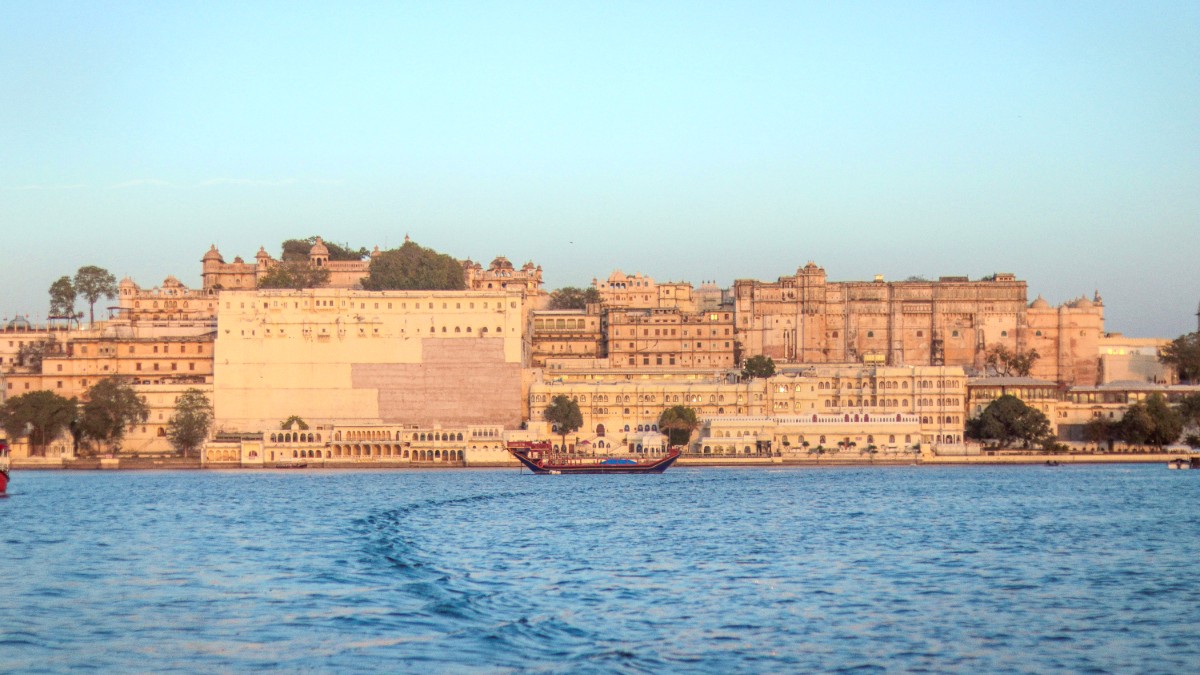
Rajasthan, India
Sajjangarh Wildlife Sanctuary works to protect local flora and fauna. Lake conservation efforts are underway to clean and preserve these water bodies.
Waste management brings ongoing challenges. Minimize your waste generation. Carry a reusable water bottle and decline plastic bags when shopping.
Rajasthan is an arid region. Water is a precious resource. Be mindful of your water usage in hotels. Take shorter showers and turn off taps.
Your actions contribute to the environmental well-being of the region.
Look for hotels that promote sustainable practices. These might include water recycling systems, solar power, or waste reduction programs.
Consider purchasing carbon offsets for your flights. Many airlines offer this choice directly during booking. Alternatively, use independent platforms that fund projects.
Choosing environmentally conscious stays supports local sustainability efforts. These accommodations often blend into the natural environment and practice responsible tourism.
Your purchases and tour choices make a difference. Supporting ethical retailers and tour operators benefits both the environment and local communities.
Find environmentally conscious accommodations with transparent practices.
Explore EcobnbSeek out tours and activities that prioritize local well-being and minimal environmental footprint.
View G AdventuresSupporting eco-friendly businesses and offsetting your travel's carbon footprint makes a positive contribution to Udaipur's environment.
Respectful interaction guidelines and cultural preservation efforts enhance your journey.
Support initiatives that work to preserve historical buildings, traditional arts, and cultural heritage. Your visit helps in the ongoing efforts to keep these aspects .
Dress modestly, especially when visiting religious sites or traditional areas. Always ask for permission before taking photos of people, specifically women and children, and respect their decision if they decline.
Do not photograph religious ceremonies without explicit permission. Be discreet and do not disrupt sacred rituals. Be mindful of privacy, specifically in residential areas. Do not photograph people in their homes without consent.
Always remove your shoes before entering temples, gurdwaras (Sikh temples), and often before entering people's homes or some traditional shops. For women, covering your head with a scarf or dupatta is required in many temples.
Beyond physical sites, cultural preservation extends to supporting local initiatives that maintain traditional customs and art forms. Engage with communities to foster cultural exchange.
Seek out artisan workshops and purchase directly from creators.
Participate in guided tours that bring benefits to rural communities.
Witness and take part in local festivals respectfully.
Your spending choices directly affect the local economy. Responsible travel maximizes positive economic benefits for local communities.
Opt for staying in homestays to directly contribute to local families.
Participate in organized village tours that support local residents.
Join workshops for crafts or cooking directly benefiting local artists.
Avoid giving money to beggars, especially children. This sometimes perpetuates cycles of poverty.
Be very cautious about visiting or volunteering at orphanages. Many are not genuine and sometimes contribute to exploitation.
Avoid activities involving cruelty to animals, like mistreated elephants or snake charming.